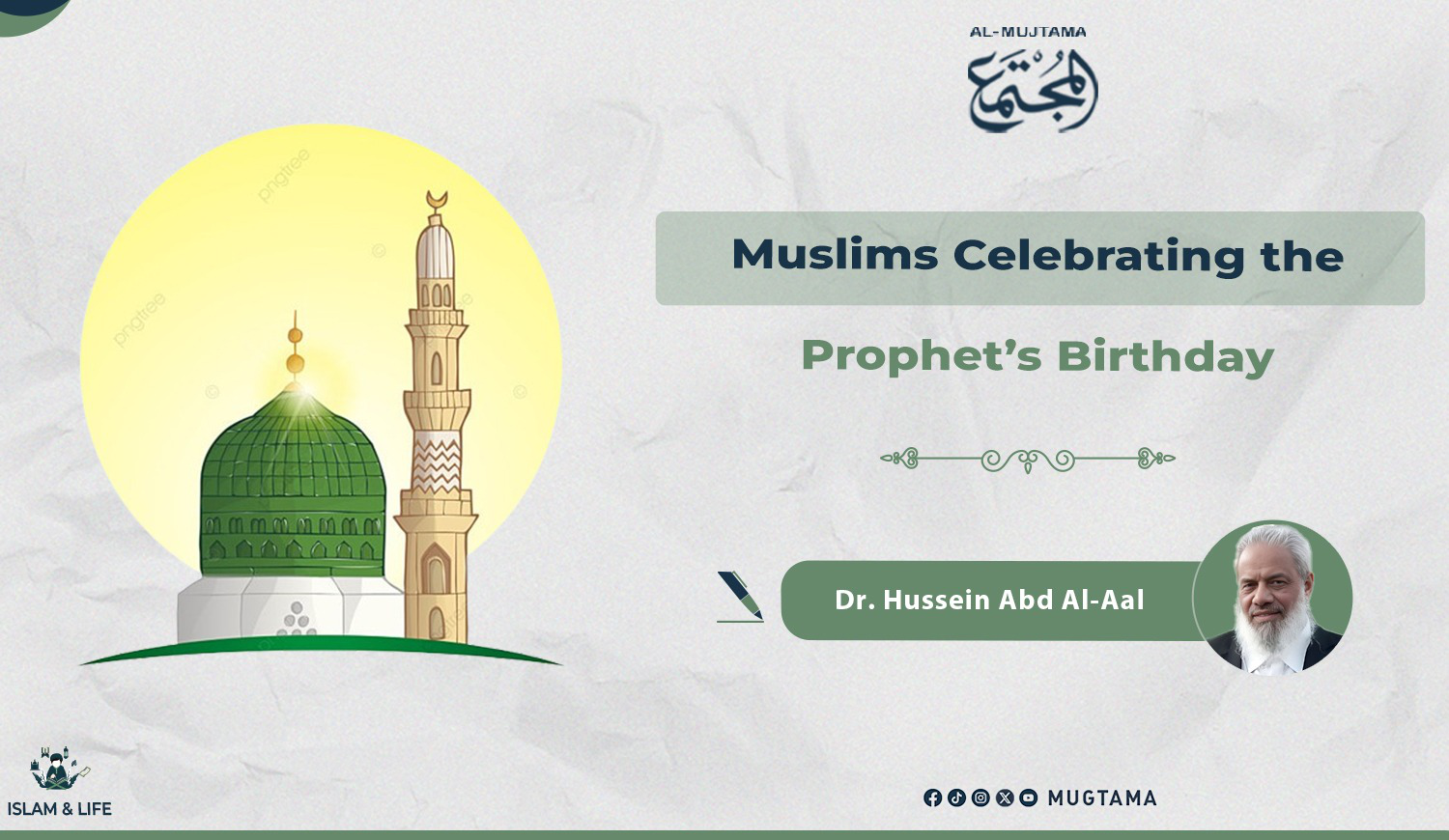Muslims Celebrating the Prophet’s Birthday

Peace and Blessings Upon the Messenger of Allah (peace be upon
him)
May the peace and blessings of
Allah be upon you, my master, O Messenger of Allah, as long as pens write your
name and speakers speak of you. For Allah sent you as a light to the worlds and
made you a radiance for all creation, and so the entire universe was
illuminated with your light. Your Lord Said about you: {
O Prophet! We have sent you as a witness, and a deliverer of
good news, and a warner, and a caller to ˹the Way of˺ Allah by His command, and a beacon of light.} [Al-Ahzab
33:45-46]
When the People of the Book
turned away from following this clear light, because their inner sight was
afflicted before their actual sight, Allah Reminded them of that light, Saying,
{ O People of the
Book! Now Our Messenger has come to you, revealing much of what you have hidden
of the Scriptures and disregarding much. There certainly has come to you from
Allah a light and a clear Book through which Allah guides those who seek His
pleasure to the ways of peace, brings them out of darkness and into light by
His Will, and guides them to the Straight Path.} [Al-Ma’idah 5:15-16]
The Birth of the Noble Prophet (peace be upon him)
In the month of Rabi` Al-Awwal,
in the Year of the Elephant, the best human being ever to walk upon the earth
was born, the most honored and noble of all of the creation of Allah. Muhammad (peace
be upon him) was born at a time when the world was in greatest need of his
light and his message. Darkness had enveloped the world: religious darkness,
moral darkness, social darkness, even political and economic darkness. Humanity
longed for light, and Allah willed to bring His servants out of darkness into
His manifest light. Thus, Allah decreed the birth of Muhammad (peace be upon
him).
Shaykh Safiur-Rahman
Al-Mubarakpuri (may Allah have mercy on him) said: “The Master of the
Messengers (peace be upon him) was born in the quarter of Banu Hashim in
Makkah, on the morning of Monday, the ninth of Rabi` Al-Awwal, in the year
after the event of the Elephant, forty years after the reign of Khosrow
Anushirvan. That corresponds to the 20th or 22nd of
April, 571 CE, as determined by the great scholar Muhammad Sulaiman Al-Mansur
Furi and the astronomer Mahmoud Pasha.”
Ibn Sa`d narrated that the mother
of the Messenger of Allah (peace be upon him) said: “When he was born, there
was a light that issued out of my pudendum and lit the palaces of Syria.”
Imam Ahmad narrated something similar from Al-`Irbad Ibn Sariyah (may Allah
have mercy on them). (1)
How Should We Celebrate His Birth?
Every year, people differ, and
debates erupt between those who support celebrating the Prophet’s birthday and
those who oppose it. Opponents call supporters innovators in religion,
while supporters accuse opponents of lacking love for the Messenger of Allah (peace
be upon him).
The truth is the matter is lighter
than that. Looking into the Sunnah of the Messenger (peace be upon him), we do not find decisive
evidence that he himself or his Companions or the early generations celebrated
his birthday. Even when `Umar Ibn Al-Khattab (may Allah be pleased with him)
set a calendar for the Muslims, he chose the Hijrah, not the Prophet’s (peace
be upon him) birth, as the starting point. Moreover, the exact date of his
birth is disputed, while what is certain is that he passed away on the 12th of
Rabi` Al-Awwal. So, are the celebrants commemorating his birth or his death?
On another note, the Prophet (peace
be upon him) was asked about fasting on Mondays. He replied: “This is the day on which I was born and the day on which
I was sent (with the Message of Islam) and the day on which I received
revelation.” (2) Thus,
while he did not celebrate his birth outwardly nor command it, he used to fast
on Mondays in gratitude to Allah for that blessing.
So, if a servant rejoices at the day of his master’s birth, is there anything to prevent this? Of course
not. There is no prohibition against it. Rather, it is joy for the birth of the
one whose very life Allah Swore by: {By your life ˹O Prophet˺, they certainly wandered blindly,
intoxicated ˹by lust˺.} [Al-Hijr 15:72]
Combining Both Views
The middle path is that there is
no legal or rational harm if a Muslim rejoices in the birth of the Messenger of
Allah (peace be upon him) and remembers it, even celebrating it in a manner befitting his lofty status. This can be through
increased reading and teaching of his Sunnah and biography, delivering lessons
in mosques on this occasion, and even expanding in generosity with one’s family
out of joy. Provided it is not turned into a rigid annual ritual that becomes a
binding innovation.
At the same time, one must beware
of making the celebration an act of absolute worship, or falling into
innovations that occur in these occasion, such as blameworthy assemblies,
entertainment, dancing, unlawful mixing of men and women, drinking intoxicants,
or exaggeration in praising the Prophet (peace be upon him) beyond limits, or
making it a Sunnah. None of this has any authority from Allah.
Imam Al-Suyuti said: “In my
view, the basis of celebrating the Prophet’s birth—gathering people, reciting a
portion of the Qur’an, narrating reports of the Prophet’s mission, and what
occurred at his birth of miraculous signs, then spreading food for them to eat
before dispersing without further additions—is among acceptable innovations.
Its doer is rewarded because it contains reverence for the status of the
Prophet (peace be upon him) and manifesting joy and gladness at his noble
birth.” (3)
Also Read:
- Prophet Mohammed ﷺ Glad Tidings Indications
- 5 Habits for a Healthier Life from Prophet’s ﷺ Sunnah
- The Prophet's Migration (Hijra): Lessons for Today
-------------------------------------------------------------
Resources:
- Ar-Raheeq Al-Makhtum by Safiur-Rahman Al-Mubarakpuri , p. 45.
- Narrated by Muslim (1162).
- Husn Al-Maqsad Fi `Amal Al-Mawlid by Al-Suyuti, p. 41.
Read the Article in Arabic











